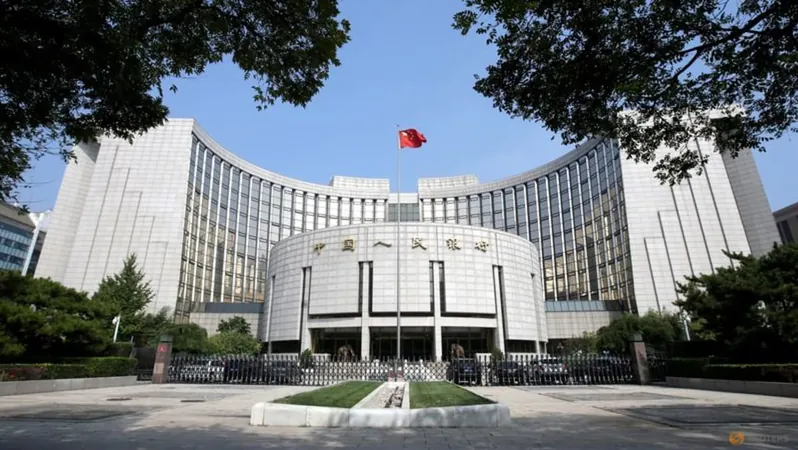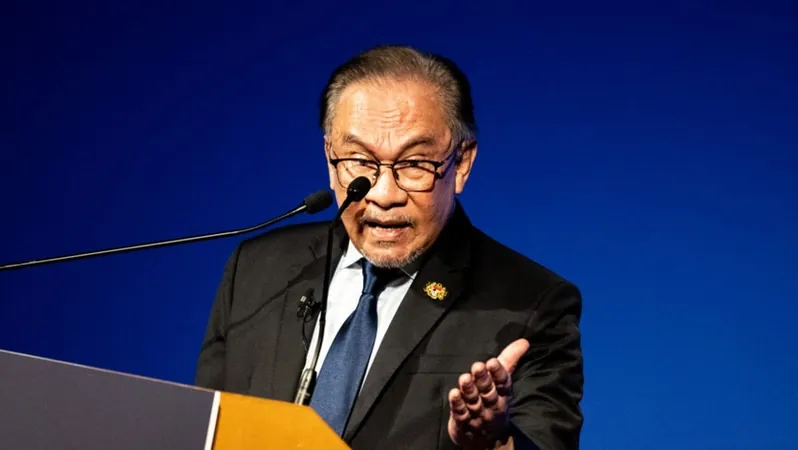
China Takes Bold Steps to Revitalize Economy with Major Reserve Cuts and Liquidity Injection
2024-09-27
In a significant move to stimulate its slowing economy, China announced on Friday, September 27, that it would cut the reserve requirement ratio for banks, freeing up approximately $142.6 billion in liquidity into the financial market. This decision reflects the urgency of tackling the economic challenges facing the world's second-largest economy.
The announcement by the People's Bank of China (PBOC) comes on the heels of a high-level meeting involving President Xi Jinping and senior officials, where they acknowledged "new problems" impacting economic growth. With the growth target set at 5% for this year, economists are increasingly skeptical, citing various obstacles including a prolonged debt crisis in the real estate sector, sluggish consumer spending, and alarmingly high youth unemployment rates.
Earlier in the week, the ruling Communist Party convened its Politburo to closely analyze the persisting economic conditions. Reports from the meeting emphasized the need for a comprehensive and objective assessment of the current situation, noting that "new situations and problems have emerged." The Politburo stressed the importance of confidence and the effectiveness of policy measures in promoting economic recovery.
In conjunction with the reserve requirement cut, the central bank also reduced the seven-day reverse repo rate from 1.7% to 1.5%. These monetary policy adjustments are aimed at invigorating financial markets and improving lending conditions for businesses.
The recent policy changes have already resulted in a positive response from investors, with stock markets in Shanghai and Hong Kong witnessing an impressive increase of over 9% this week. Analysts view these measures as an indication that Chinese officials are ready to implement bolder strategies to spur growth.
Notably, sources indicate that the government is contemplating an injection exceeding $140 billion into state-run banks, marking the first substantial capital injection since the global financial crisis of 2008. This initiative aims to provide banks with the liquidity necessary to lend more effectively to businesses and stimulate economic activity. The funding would primarily be facilitated through the issuance of "new special sovereign bonds."
As China navigates these turbulent economic waters, analysts remain vigilant, suggesting that the government's recognition of the severity of the situation could pave the way for more aggressive policy actions. While the recent announcements reflect a willingness to adapt, experts assert that continued vigilance, strategic planning, and decisive action are critical for achieving the ambitious growth targets set for 2023.
With the global economy facing its own challenges, all eyes are on China's next steps as it attempts to regain momentum and fortify its economic foundations in a rapidly evolving landscape.

 Brasil (PT)
Brasil (PT)
 Canada (EN)
Canada (EN)
 Chile (ES)
Chile (ES)
 España (ES)
España (ES)
 France (FR)
France (FR)
 Hong Kong (EN)
Hong Kong (EN)
 Italia (IT)
Italia (IT)
 日本 (JA)
日本 (JA)
 Magyarország (HU)
Magyarország (HU)
 Norge (NO)
Norge (NO)
 Polska (PL)
Polska (PL)
 Schweiz (DE)
Schweiz (DE)
 Singapore (EN)
Singapore (EN)
 Sverige (SV)
Sverige (SV)
 Suomi (FI)
Suomi (FI)
 Türkiye (TR)
Türkiye (TR)